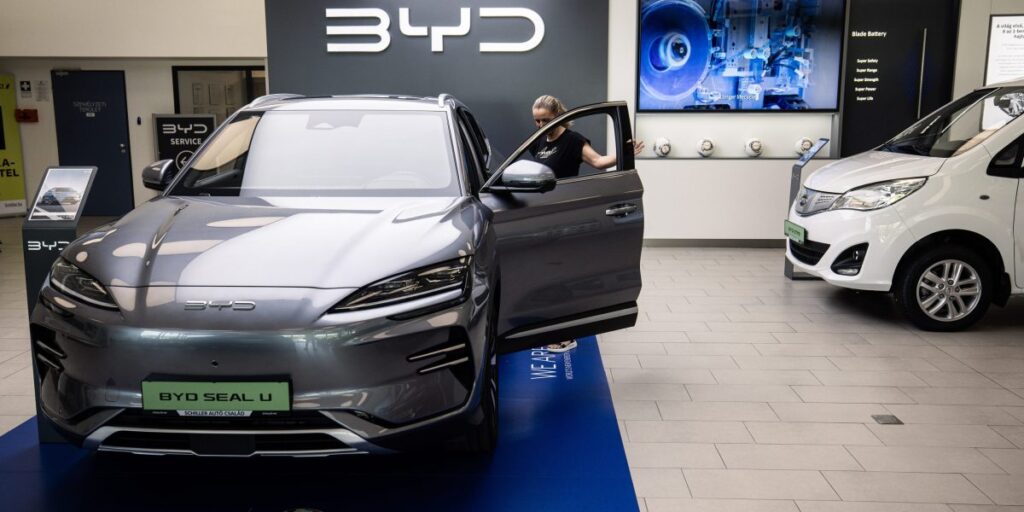
Chinese automakers are one step closer to fulfilling Tesla CEO Elon Musk’s prediction that they will one day “destroy” most other car companies after outselling their U.S. rivals in sales for the first time.
A report from automotive data company JATO Dynamics showed that Chinese automakers sold 13.43 million vehicles last year, surpassing U.S. companies’ sales of 11.93 million vehicles. Warren Buffett-backed electric car maker BYD makes the most popular Chinese car, a compact sedan called the Qin, and two other cars made the top 25 best-selling cars last year. Tesla won the title of best-selling car in 2023 with Model Y.
During Tesla’s January earnings call, Musk praised Chinese automakers and said they were the “most competitive” in the world. He also warned about the rapid growth of Chinese automakers.
“Without trade barriers, they would pretty much destroy most of the other car companies in the world,” Musk said at the time.
That forecast may slowly come to fruition as Chinese car brands look overseas to spur growth after seeing declining demand in China. Last year, Chinese automakers trailed only Japanese and European automakers in global light vehicle sales, the report said.
Felipe Muñoz, senior analyst at JATO Dynamics, said the consolidation of traditional automakers is part of the reason for the rise of powerful Chinese competitors.
“Legacy automakers’ negligence has led to persistently high vehicle prices, inadvertently prompting consumers to switch to more affordable Chinese alternatives,” Muñoz said in a statement. “As vehicle prices continue to rise elsewhere, , Chinese car brands are taking advantage of this trend to gain market traction at a faster pace.”
Faced with the power of China’s growing auto industry, some traditional automakers are making moves to compete. In Japan, its two largest automakers, Nissan and Honda, announced a partnership in March to compete with China in electric vehicles.
Some politicians have accused Chinese automakers of unethical behavior while trying to curb their threat through tariffs. This week, the European Commission imposed import tariffs ranging from 17.4% to 38.1% on three Chinese automakers, including BYD, after a commission investigation found that Chinese electric vehicles benefited from state subsidies that were unfair to global competition.
In May, President Biden also raised tariffs on imported Chinese electric vehicles to 102.5% from the previous 27.5%.
“China’s policies could flood our market with cars and pose a risk to our national security. I will not let that happen on my watch,” Biden said in a statement before this year.

